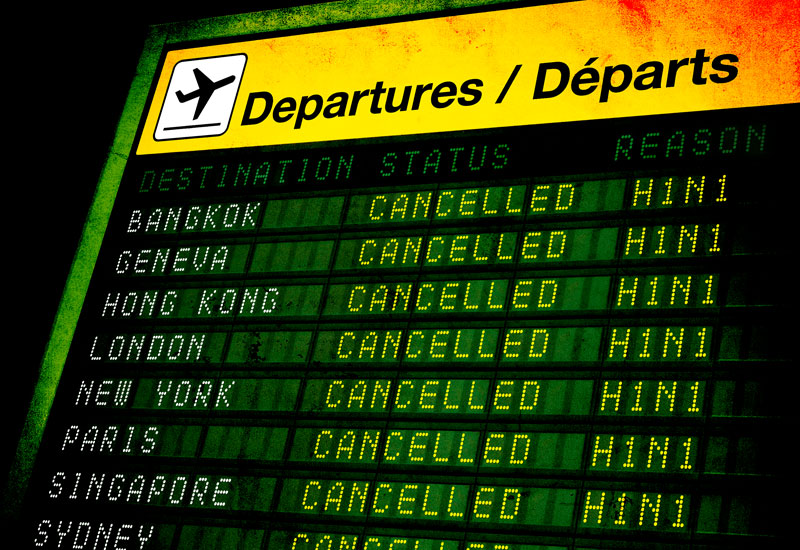Rafi said he believed Swine Flu had more impact on summer sales than economic conditions because clients who had cancelled were those with families who did not want to put their children at risk of contracting H1N1.
Dubai’s Trans Arabian Travel operations manager George Joseph concurred with Rafi adding: “One of my colleagues had a cruise booking for Barcelona cancelled because the ship had reported cases of the flu.You can’t control it and many people are not rebooking — they are staying put as they are really afraid to travel.It is really affecting our business.”
At the top end of the market, one client of The Leading Hotels of the World told director of sales Middle East Hatem Chatter that he could “never forgive himself” if something happened to his children if he travelled during the summer.
Hatem added that in the Middle East, in addition to fears of contracting the virus, the name of the virus, which pertained to pigs/pork meant it was an “offensive” disease to catch. “It would have been more tolerated if it was horse, cow or bird flu,” he said.
Dnata senior divisional vice president Iain Andrew aid it was “difficult to accurately gauge” the damage Swine Flu had caused to summer sales but believed there were reasons for optimism including growth in airline ticket volumes at Dnata Agencies.
“This is a real indication that people are continuing to travel as usual — and in significant numbers,” he said. “We will be entering several traditionally busy holiday periods soon and we would expect to continue to see a small uplift in sales throughout the next two quarters.”

Advertisement
H1N1: THE FACTS
• The majority of pandemic (H1N1) 2009 cases are still occurring in people aged 12 to 17 years (based on data from Canada, Chile, Japan, UK and the US).
• Those most at risk are people with cardiovascular or respiratory disease, diabetes, cancer, asthma, obesity issues or pregnant women.
• At time of press, Swine Flu had impacted 18 Arab countries. The total number of sufferers hit 2187 and seven deaths had been reported.
Source: WHO
Dubai takes preventative steps
The Dubai Department of Tourism and Commerce Marketing (DTCM), in cooperation with the Dubai Health Authority (DHA), has revealed its plans to combat H1N1 in the UAE.
Committees have been created to counter the threat of H1N1 and 30,000 Swine Flu information leaflets have been distributed.
As many as 38 thermal detectors have been installed at airports and entry points in the UAE at a cost of AED 7.5 million (US $2.04 million).
The DTCM has said passengers are not restricted from travelling to any destination as long as they takethe necessary precautions against contracting H1N1.
The UAE has a stock of five million Tamiflu capsules, which treats the virus and vaccines to protect against the flu strain will arrive in the UAE in September.
Business travel OK
HRG senior corporate executive Alison Cook told ATN that Swine Flu had not impacted corporate sales. “In fact business is on the up,” she said.
“Bookings are coming in and our clients are definitely still travelling.
“They are downgrading from business- to economy-class but that’s due to economic conditions, not Swine Flu.”









 Search our database of more than 2,700 industry companies
Search our database of more than 2,700 industry companies









